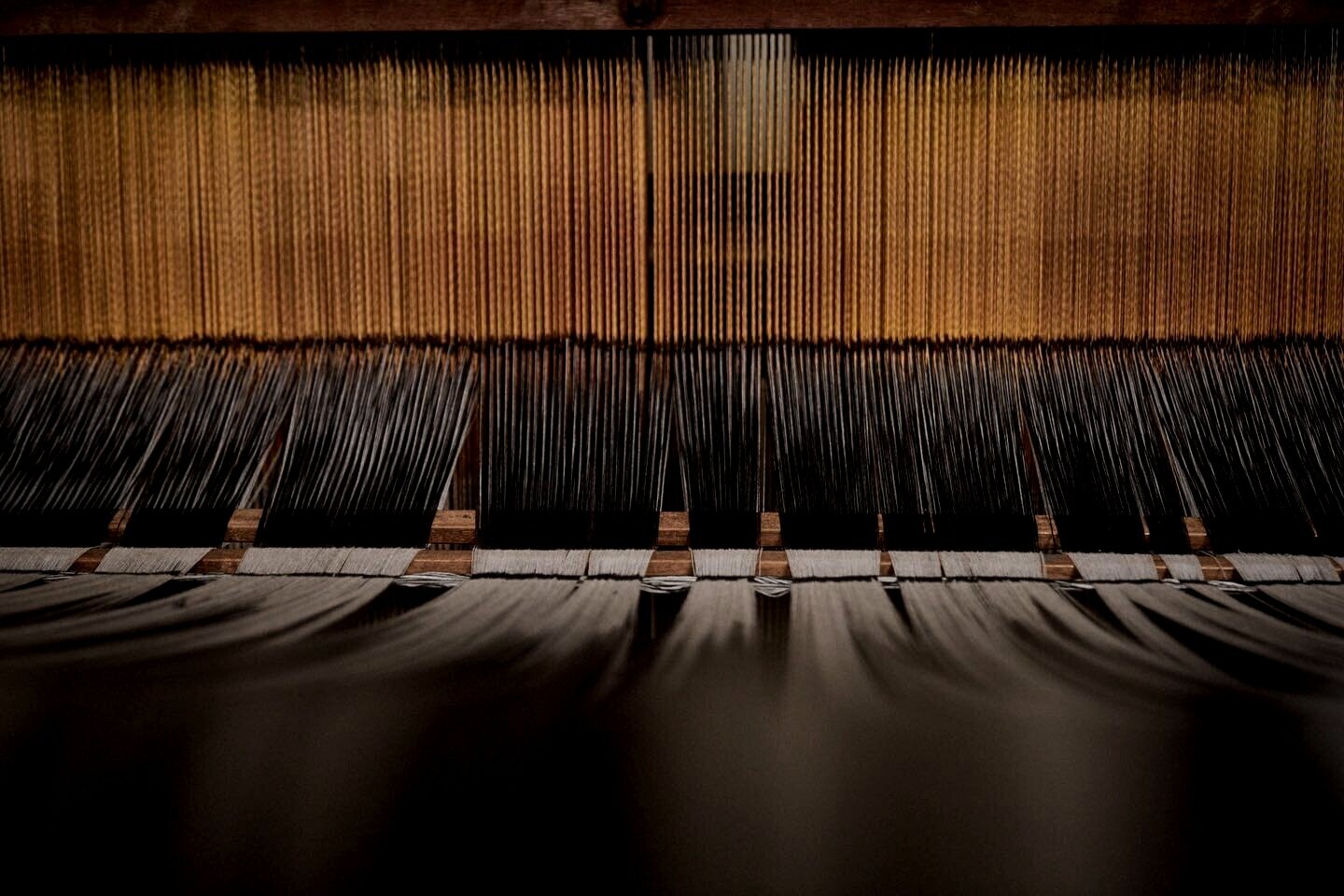Building a
seed-to-sew
supply chain
Entrepreneur Nishanth Chopra is building a homegrown seed-to-sew cotton supply chain from the ground up.
nishanth’s journey
Nishanth grew up in a ‘textile town’ in Tamil Nadu, India and saw firsthand how pollution and effluent waste from nearby textile mills and factories affected local communities and ecosystems. After a stint in the UK for university, he returned home with the goal to start his own fashion line, using organic cotton, linen, and other more sustainable materials. That’s when he watched Merku Thodarchi Malai, the Tamil movie that inspired him to pay even closer attention to his cotton supply chain.
Nishanth Chopra, Founder of Oshadi Collective
‘It showed the story of farmers who are locked into this vicious circle of the hybrid GMO supply chains created during the green revolution in India. When I watched that movie, I kept thinking about every single step in the supply chain. I worried about buying cotton from a farm we didn’t know paid farmers fairly. That’s when I spoke to [Rebecca Burgess, founder of Fibershed] and asked her for support to start a farm. She gave me a grant and connected me with my first brand partner Christy Dawn so I could get a piece of previously inorganic land and start trying regenerative practices.’
Nishanth in the field ©Oshadi Collective
THE PROBLEMS NISHANTH IS TACKLING
Cotton seed ©Oshadi Collective
Farmers trapped by private seed companies. ‘I’m sure you know that India has one of the highest rates of farmer suicides in the world. So basically the reason behind that is a farmer with a small piece of land goes to a company selling GMO seeds. The company will say, “don't buy native seeds, we can give you hybrid seeds which will give you five times more yield.” The results of those seeds in the first season are fantastic, the farmer might get 10x what they normally get.
Oshadi’s first farmers empowerment workshop, December 2020 ©Oshadi Collective
So, they use those seeds for a second season, but the soil has been depleted because everything has been extracted from it. So the farmers go back to the GMO seed company and ask what they can do. And the guy from the company's like, “we have this salt, or you know we have this chemical, which you can use.” So the farmers use those chemicals, and again the results are fantastic for a while. But then they start having problems with weeks so the farmers go back to the company again, and the company sells them this chemical called Roundup, which starts to act like a drug in that over time you need more and more of it to get the same results. Sometimes these companies provide these seeds and chemicals on credit with interest rates that compile over time — the expenses accumulate for the farmer, and can become impossible to pay off.’
Quality checks ©Oshadi Collective
Unfair market demands compromise certifications integrity.The fact that organic cotton that seemed to be readily available in Indian at unbelievably low prices made Nishanth question how sustainable that cotton really was. ‘Just 2% of the world's cotton is organic cotton.So I wondered, how can every mill in India have organic cotton when there's only supposed to be 2% organic cotton? I looked into it and realised a lot of it was fake. A farm could get a certificate for 500 acres of cotton, might farm organically for just 20 acres of that and farm everything else inorganically. It’s because the prices set by the system aren’t the right prices, aren’t fair prices.’
NISHANTH’S SOLUTIONS
Farmer Kuppasamy holding earth worms at the regenerative cotton field shot by @AshishChandraStudio
Returning to regenerative practices. The practices Nishanth uses are regenerative, but they're not new. Rather, they’re inspired by traditional Indian farming techniques. ‘We’re going back to pre-green revolution practices. Traditional Indian farming is completely organic, completely sustainable. People knew about cover crops, people knew about trap crops, people knew about not using [chemicals], people knew about not filling stuff below the soil level, people knew about pollinated strips.
Key elements to regenerate the soil, as portrayed in Christy Dawn blog about the collaboration with Oshadi
They didn't know these terms but they knew it all had to be there for the farm to be right. We’re trying to find and use information from older generations who remember what it was like to farm without chemicals and insecticides. You go explore and get loads of information and start filtering through it to find the things that could work. It was difficult for us to figure out traditional farm set-ups and layouts, what they used back in the day. But we took it step by step and figured things out one at a time.’
Letting practices set the price. ‘Just because the cotton is priced as $2 or $4 doesn’t mean the price is right. I thought, let's start farming and find out what the real price of the cotton is, and then we decide what we want to pay for the cotton, instead of letting the commodity market decide.’
Cotton pickers in Namma Erode City, Tamil Nadu, India ©Oshadi Collective
Building an entire supply chain. As a farming, processing, dyeing, and manufacturing operation that partners directly with brands and produces an own-label clothing line, Nishanth’s work spans the entire supply chain from farm to finished fashion product. ‘This season we are doing 28 acres of organic cotton for brands and for our own womenswear collection [Oshadi] and we are also growing five acres of indigo. We are looking to dye the cotton we are growing with dyes we grow on the same farm.’
‘Just because the system is the one everyone around the world follows doesn’t mean the system is right.’
Nishanth chopra
Learn more
Where can I follow Nishanth’s updates?
Where can I see his collection?
How does he work with other brands?
How do I find more information about the practices adopted on the farm?
Did you know Nishanth was listed in Forbes India’s 30 under 30?
©Oshadi Collective
Greetings from: Erode, Tamil Nadu, India
Thanks to Tamsin Blanchard of Fashion Revolution for introducing us to Nishanth’s Story











